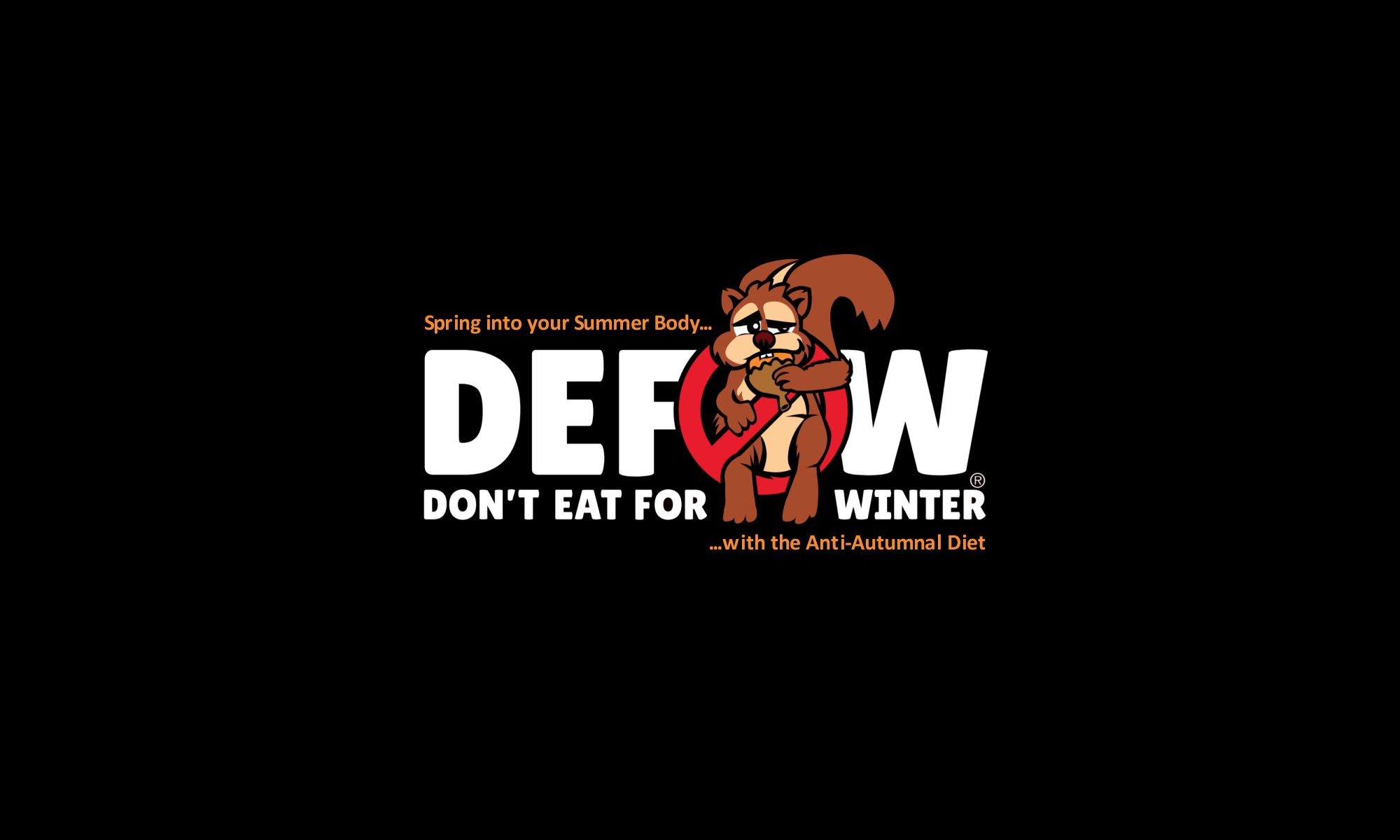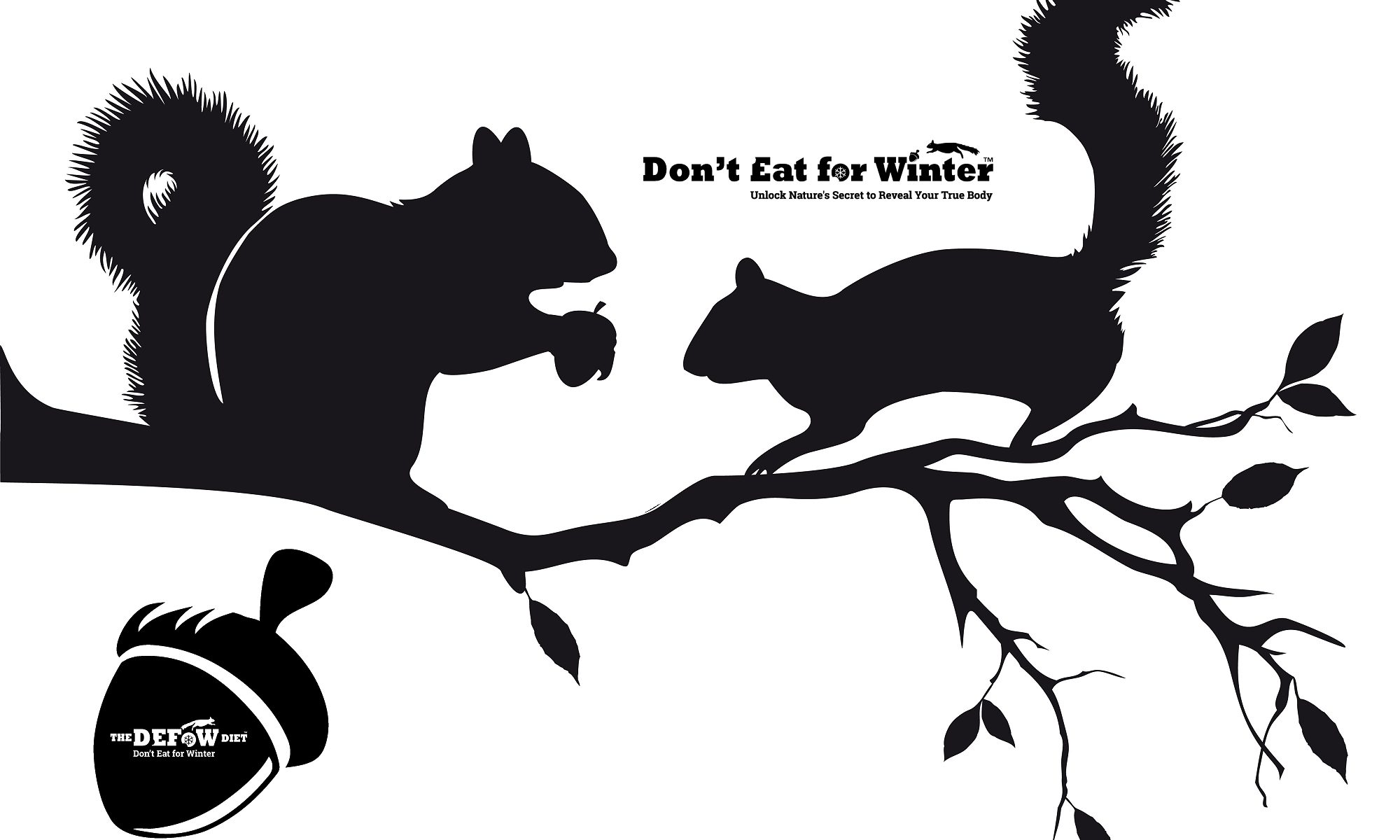Q. Why do animals such as squirrels put on weight in Autumn?
To fatten up for the winter. They store fat as an energy supply, some even hibernate in order to survive the cold and famine of winter.
Q. Are human beings the same as animals?
Human beings evolved in various eco-systems around the planet and evolved to work in balance with their environment. In Autumn, sugary and starchy carbs came into harvest such as fruits, veg, grains etc. along with fats such as nuts, which trigger processes that stimulate weight gain.
Q. Why are carbs the problem?
As well as the extra calories potentially available, it is now known that carbohydrates cause the body’s blood sugar levels to rise, which in turn causes the pancreas to produce insulin, which forces the body’s cells to store nutrients, such as fat, and stops the body using the nutrients stored in them. Carbs also cause lethargy, dips in energy and primal gorge instincts activating addiction centres in the brain in a similar way to drugs, which is why they taste so good. These are all primal survival processes aimed at giving humans the best chance possible to survive winter through putting on body fat, which was once advantageous.
Q. Why do we continuously put on weight?
Through modern techniques such as preservatives, deep freeze, transport, convenience stores etc., autumn carbs are now available 24 hours a day, 365 days a year to the general population. This means we are constantly in autumn (from a dietary point of view) and because we are always in autumn, winter never comes, and so we never get a chance to lose weight naturally like our ancestors would have in winter. Based on this logic, Don’t Eat for Winter then simply means that we need to stop continuously eating for winter, every day, all year round by splitting the day into seasons rather than the year (which would be almost impossible).
Q. Why chronic weight gain?
As well as having natural foods available, we have created refined versions taking out all of the nutrients (vitamins and minerals) from the foods and fibre ( which slows digestion), and so our blood sugar levels are spiking in an unnatural way promoting chronic weight gain and related diseases such as hypertension, diabetes and chronic heart disease.
Q. How much is enough?
At rest the brain uses 60% of the body’s requirement for sugar (about 420 calories a day). That means in total <800 calories of carbs a day. The body wants to burn fat at 85% efficiency at rest, but when carbs come into the picture things change. 800 calories a day means 33 calories an hour or 8g of carbs an hour (as 1g of carbs = 4 kcals of energy). One can of a popular soda will therefore give the body enough sugar energy for 4 hours (without nutrients). Now add that to a meal with carbs and you’ve got a surplus of sugar energy, which will be converted into fat before your next meal.
Q. What if I work out or am physically active?
If you work out or have a manual labour type job, this requirement increases as the body burns sugar efficiently when active in many cases. There are essentially 5 energy systems in the body, many of which utilise sugar.
- Brain: Uses sugar (in the form of glucose)
- ATP: molecule stored in muscles for fight or flight (instant energy)
- Glycogen: glucose stored in muscles for anaerobic energy e.g. 60 yard dash, lifting weights. Uses sugar. The liver also stores glycogen as a short term back up battery to keep blood sugar levels topped up (for brain in particular) when not being supplied from the stomach.
- Aerobic (low intensity, including sleep): Uses fat
- Aerobic (high intensity): Uses sugar
Q. What can I do about it?
It is almost impossible in the western diet to cut out carbs and mimic the natural world on a seasonal basis, however it is possible to do it on a daily basis giving a net-effect of simulating the seasons. Having fewer insulin spikes a day means the body stays in fat utilisation mode for much more of the day. So timing and food combinations are important. The DEFoW Diet aims to address this.
Exercise will also increase the resting metabolism and burn off excess sugars so you will burn more fat when exercising, however diet is 80% of the problem. Through exercise and supporting diet you can become the best you. Exercise will not solve weight issues alone, and your recovery and lean muscle gain/retention will be affected by poor diet.
Q. Can I have treats/junk?
Of course, this is not a self-denial diet, it is a healthy, natural diet and so treats should be sparing. Treats, in general, offer very little nutritional value and so are wasted calories from the body’s point of view unless you burn them off and use them for energy purposes. They also trigger primal gorge instincts so often one is not enough (taste of more). What is a treat though, for me a treat is how I feel after food and being in the best shape possible, so eating good food should be your main treat and keep the junk to a minimum or for special days. E.g. go to cafe on weekend and make an occasion out of a nice coffee and cake. Be warned, there will be a taste of more off it, but if you’re in a cafe, it’s much easier to prevent gorging than if you were at home.
Q. Where can I get Don’t Eat for Winter
The book is available to purchase in printed form off the site and in e-book form on Amazon. All options to get the book are here.
Latest posts by Cian (see all)
- The worst macro combination for fat loss - May 11, 2021
- Top 200 Most Fattening Foods (most autumnal) - March 19, 2020
- Is there such a thing as The Perfect Diet? - November 22, 2019

